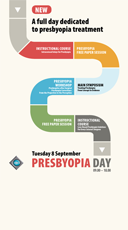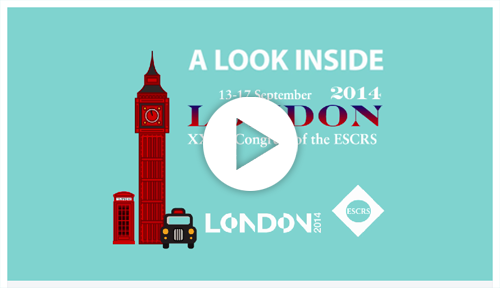Posters
(results will display both Free Papers & Poster)
Contact lens-assisted transepithelial corneal collagen cross-linking for progressive keratoconus treatment in extremely thin corneas
Poster Details
First Author: M.Belovari CROATIA
Co Author(s): I. Knezovic H. Raguz
Abstract Details
Purpose:
To report a case of forty eight year old female with progressive bilateral keratoconus who had undergone contact lens-assisted transepithelial corneal collagen cross linking (TE-CXL) using combined riboflavin solution.
Setting:
Knezovic Vision Group eye clinic, Zagreb, Croatia
Methods:
A 48 year old female had rapid progression of keratoconus on both eyes noted on Scheimpflug tomography (stage III-IV) according to Krumeich classification and CCT 224/215 microns at the thinnest location. UV barrier free soft contact lens was soaked in hypoosmolar riboflavin solution four hours prior to surgery and placed over the cornea immediately before the CXL. TE-CXL (3 mW/cm²) was performed for 30 minutes using 0,1% topical riboflavin solution (Ricrolin-TE, every five minutes one hour prior and during the treatment). The left eye was treated first, and the right eye 1 month after. Follow-up period was 10 months.
Results:
Six months after the treatment both eyes showed improvement in corneal topography and the UCDVA was better. Eight months after the treatment BCDVA improved to 0,6 in both eyes using Rose K2 contact lenses and remained stable.
Conclusions:
According to our clinical experience creation of an extra precorneal layer composed of a riboflavin-soaked contact lens and a thin subcontact lens riboflavin film could be promising to overcome the problems associated with performing collagen cross-linking in thin corneas.
Financial Disclosure:
NONE





